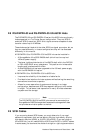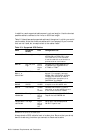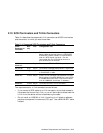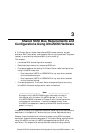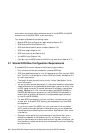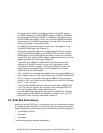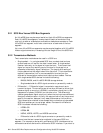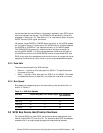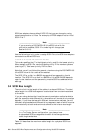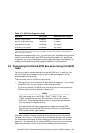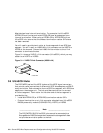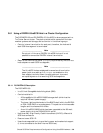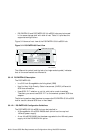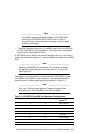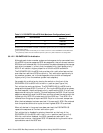
connect devices that use different transmission methods, use a SCSI signal
converter between the devices. The DS-BA35X-DA personality module is
discussed in Section 9.1.2.2. See Section 9.1 for information about using the
DWZZ* series of SCSI signal converters.
You cannot use a DWZZA or DWZZB signal converter at UltraSCSI speeds
for TruCluster Server if there are any UltraSCSI disks on the bus, because
the DWZZA or DWZZB will not operate correctly at UltraSCSI speed.
The DS-BA35X-DA personality module contains a signal converter for
the UltraSCSI BA356. It is the interface between the shared differential
UltraSCSI bus and the UltraSCSI BA356 internal single-ended SCSI bus.
RAID array controller subsystems provide the function of a signal converter,
accepting the differential input and driving the single-ended device buses.
3.2.3 Data Path
There are two data paths for SCSI devices:
• Narrow — Implies an 8-bit data path for SCSI-2. The performance of
this mode is limited.
• Wide — Implies a 16-bit data path for SCSI-2 or UltraSCSI. This mode
increases the amount of data that is transferred in parallel on the bus.
3.2.4 Bus Speed
Bus speeds vary depending upon the bus clocking rate and bus width, as
shown in Table 3–1.
Table 3–1: SCSI Bus Speeds
SCSI Bus
Transfer Rate (MHz) Bus Width in Bytes Bus Bandwidth
(Speed) MB/sec
SCSI
515
Fast SCSI
10 1 10
Fast-Wide
10 2 20
UltraSCSI
20 2 40
3.3 SCSI Bus Device Identification Numbers
On a shared SCSI bus, each SCSI device uses a device address and must
have a unique SCSI ID (from 0 to 15). For example, each SCSI bus adapter
and each disk in a single-ended storage shelf uses a device address.
Shared SCSI Bus Requirements and Configurations Using UltraSCSI Hardware 3–5



